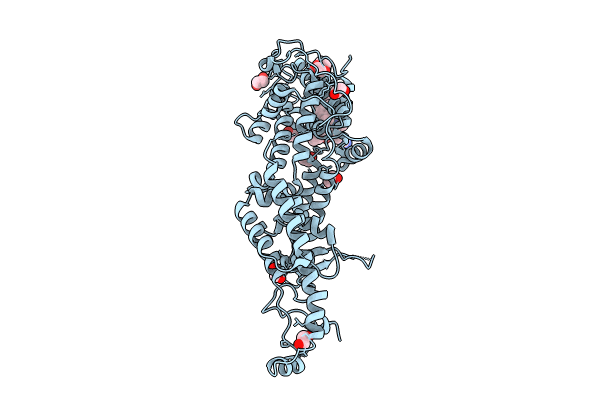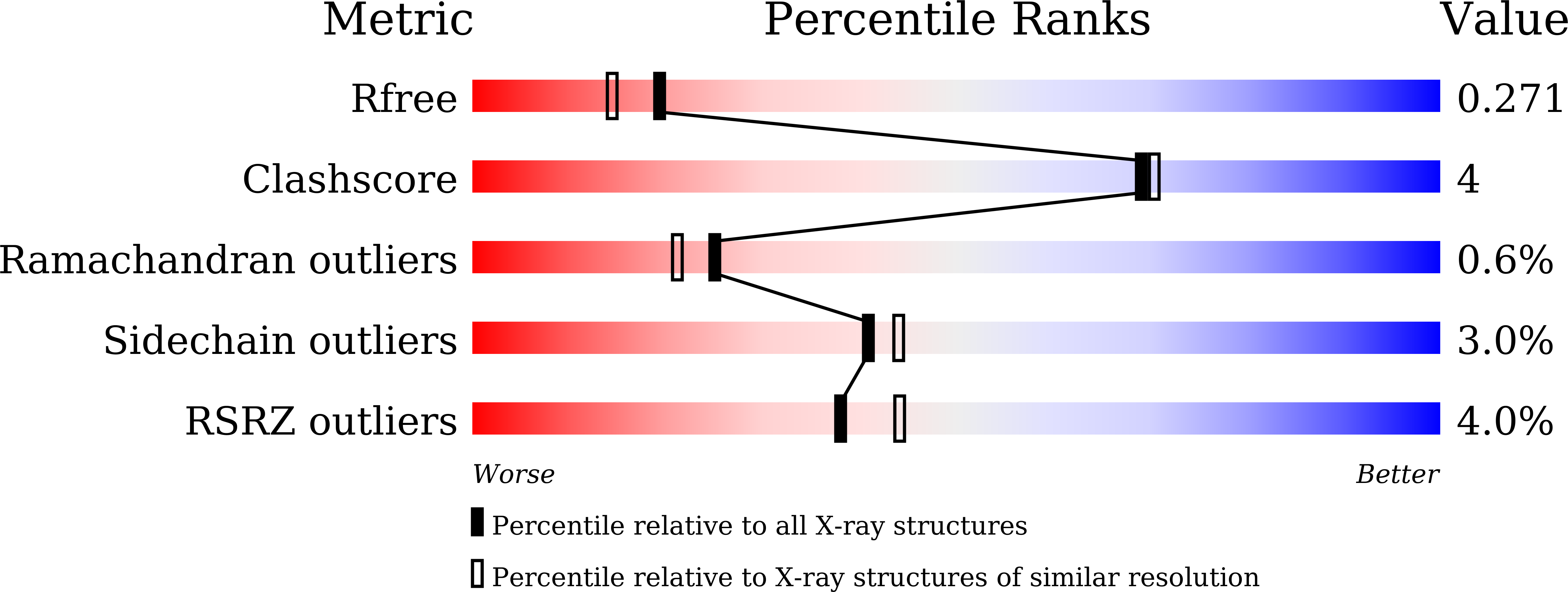
Deposition Date
2023-12-21
Release Date
2024-08-14
Last Version Date
2024-12-18
Entry Detail
PDB ID:
8XJJ
Keywords:
Title:
Co-crystal structure of SOS-1 and a potent, selective and orally bioavailable SOS1 inhibitor RGT-018
Biological Source:
Source Organism:
Homo sapiens (Taxon ID: 9606)
Host Organism:
Method Details:
Experimental Method:
Resolution:
2.10 Å
R-Value Free:
0.26
R-Value Work:
0.21
R-Value Observed:
0.22
Space Group:
P 21 21 21


